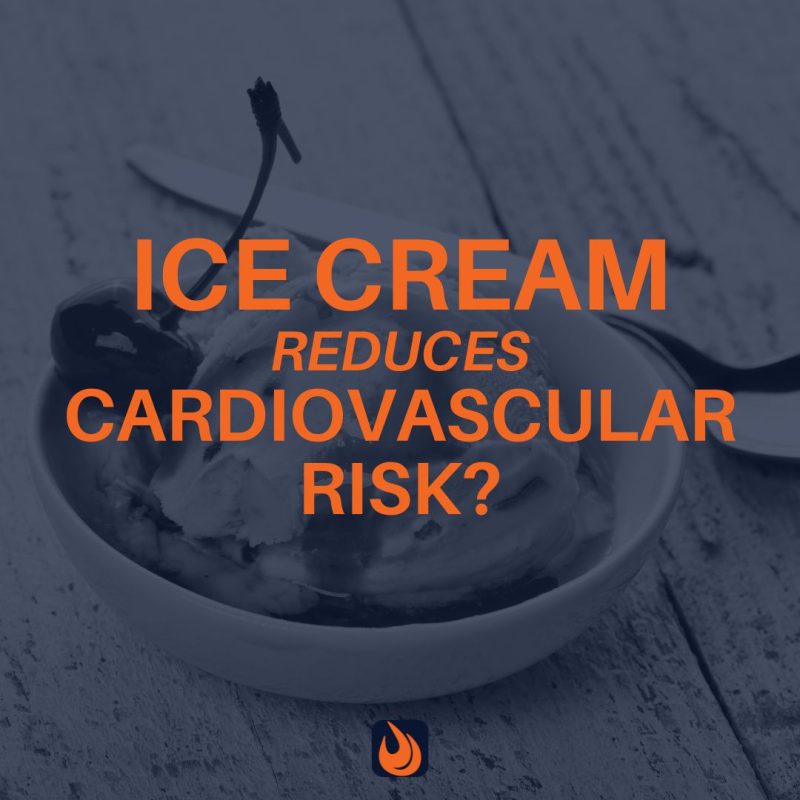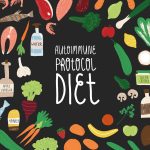
Recent research has surprised scientists and befuddled nutrition experts by announcing a data-based finding that diabetics consuming ½ cup of ice cream have a lowered incidence of developing cardiovascular disease, a common comorbid ailment among individuals with Type 2 diabetes (T2D). Too good to be true? Perhaps not!
Personal trainers have a responsibility to coach their clients’ dietary choices and provide current information to guide clients with pre-existing conditions.
The Dairy Insight Emerges
Experts in the field of nutritional epidemiology, where health concerns and dietary habits of hundreds of thousands of people get tracked over decades, found that T2D emerges as a major risk factor for developing cardiovascular disease/complications. Yet there has been little nutritional advice to guide such patients in a healthier, preventive-medicine route.
In 2002, when Mark Pereira served as an assistant professor at Harvard University, he published data collected since 1985. Following over 5,000 adults, he looked at the emergence of heart disease risk. Results indicated that consuming dairy-based foods might prove a factor in preventing overweight individuals from routinely developing insulin-resistance syndrome, which often leads to the onset of T2D.
The most significant – and surprising – result indicated that ice cream consumption (a ½ cup serving one or two times a week) led to a 2.5x greater risk reduction for T2D precursors than what Pereira’s team found for the consumption of milk and cheese. Furthermore, the study revealed that these same subjects demonstrated a 12% less likelihood of developing cardiovascular disease, when compared to those participants who had not consumed ice cream.
Chemical Structure at Play?
Proponents of dairy consumption for diabetics often cite the milk-fat-globule membrane, a triple-layered membrane that encases the fat within mammalian milk. Some scientific data points out that dairy products with an intact membrane, such as ice cream, seem more metabolically neutral than butter, for example, which loses the membrane during the process of churning. Future studies will perhaps extrapolate on this as a potential reason for the surprising result.
Repeated Evidence
In 2018 Andres Ardisson Korat, then a doctoral student at Harvard University, presented to a thesis team his findings on the link between dairy foods and chronic disease. Once again, one study in particular revealed a most unusual conclusion: diabetic individuals who consumed a 1/2 cup serving of ice cream per day exhibited a decreased risk of cardiovascular problems.
“There are few plausible biological explanations for these results,” Ardisson Korat wrote. He likewise explained within his dissertation that many prior studies showed similar results, as with Pereira’s team; yet nobody to date can offer any definitive answer for why we suddenly want to categorize ice cream as “healthy”.
Ice Cream versus Yogurt
Kevin Klatt, a nutrition scientist at the University of California in Berkeley, found the ice cream data “more consistent” than that of yogurt. Similarly, Dagfinn Aune, an epidemiologist at Imperial College London and a peer reviewer of the now-famous ice cream discovery paper declared the ice cream effect “similar in magnitude to, or slightly stronger” than the effect found for yogurt.
A Tricky Path to Navigate
One possible explanation may reside in the glycemic index (GI) of ice cream, which tracks the speed at which a food will boost one’s blood sugar level. Unexpectedly, the GI of ice cream scores lower than for brown rice, a so-called “healthy” complex carbohydrate. Dariush Mozaffarian, Dean of Policy at Tufts University, offers a possible rationale.
“There’s this perception that ice cream is unhealthy, but it’s got fat, it’s got protein, it’s got vitamins. It’s better for you than bread…Given how horrible the American diet is, it’s very possible that if somebody eats ice cream and eats less starch … it could actually protect against diabetes.”
Not A Simple Equation
As professional trainers, we know that often a single factor can change a client’s life. However, in the case of clients with diabetes, we ought not to get too excited about the ice cream revelation.
The link between ice cream consumption and reduced cardiovascular disease risks only surfaced when researchers considered all the other aspects that affect a person’s health. One’s overall daily/monthly meal plan definitely plays a far more important role in the regulation of blood sugar and thwarting potential heart problems. An ice cream treat may no longer seem like a “cheat” in one’s diet, but it cannot substitute for a healthy daily intake of fruits/vegetables/lean protein/complex carbohydrates.
Recommended daily carbohydrate intake will vary for every diabetic patient; aspects such as the success of an individual’s glucose management, other medications they may take, height, weight, and degree of activity all play vital roles. If an individual lacks the ability to manage blood sugar safely, a doctor/dietitian may prescribe adherence to a low-carbohydrate intake. Those who adhere to this diet can eat a serving of ice cream for dessert in a meal plan simply by consuming one less carbohydrate serving throughout that day.
Likewise, every brand/flavor of ice cream contains a different amount of saturated fat, but most have relatively high levels. Taking into account a diabetic’s preponderance towards heart disease, such individuals may choose to follow a meal plan with lower saturated fats on the day they look forward to a delicious scoop of rich French vanilla.
Take-Home Message
We should note that some scientists only found moderate CVD risk success in diabetic patients who included ice cream in their diets. As a highly sensitive and intuitively complex machine, the human body will continue to baffle medical professionals and laymen alike. For now, embracing the occasional trip to Ben and Jerry’s might serve the purpose of satisfying a craving, without risk of totally derailing a diabetes meal plan. Stay tuned as more research unfolds!
References:
https://dash.harvard.edu/handle/1/37925665
https://theconversation.com/is-ice-cream-really-healthy-heres-what-the-evidence-says-203990
https://www.advisory.com/daily-briefing/2023/04/14/ice-cream
https://academic.oup.com/ajcn/article/102/1/20/4564341
https://www.ncbi.nlm.nih.gov/pmc/articles/PMC6855942/
https://www.ncbi.nlm.nih.gov/pmc/articles/PMC6821544/
https://www.medicalnewstoday.com/articles/317407
https://www.ncbi.nlm.nih.gov/pmc/articles/PMC8840212/
https://www.ncbi.nlm.nih.gov/pmc/articles/PMC8026335/







